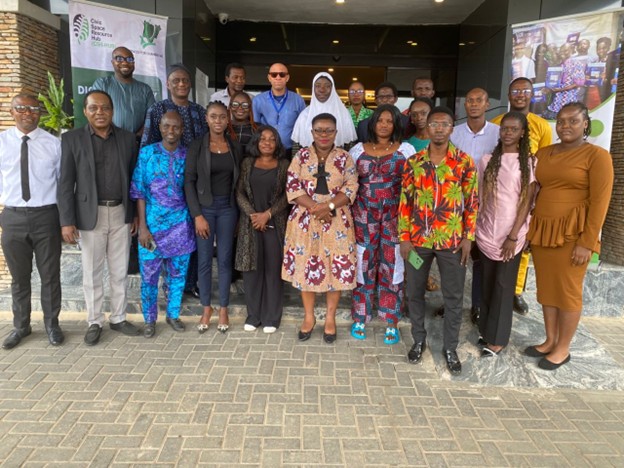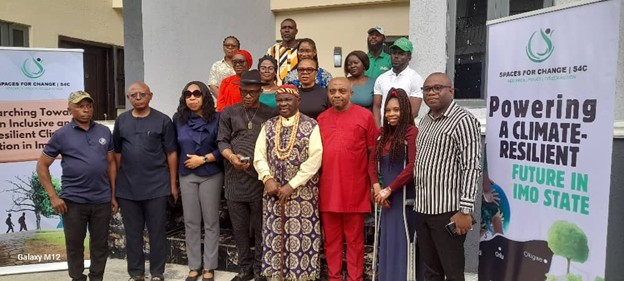
Spaces for Change participated in the Lagos State Resilience Forum | LRF 2024 organized by the Lagos State Resilience Office (LASRO) on July 2, 2024, in Lagos. Held under the theme, “Leveraging Resilience for Lagos’ Development Trajectory,” over 300 participants comprising urban experts, state policymakers, market women, artisans, students, youth associations, civil society organizations and other stakeholders in the urban sector converged at the Forum to explore innovative approaches to resilience, adaptation, and development in Lagos State. According to the Resilience Cities Network, urban resilience refers to the capacity of individuals, communities, institutions, businesses and systems within a city to survive, adapt and grow no matter what kinds of chronic stresses and acute shocks they experience.
Spaces for Change facilitated one of the sessions focusing on “People-Focused Resilience.” The main aim of the session is to evaluate the performance of the state’s existing urban resilience initiatives, highlighting the extent they reflect the needs and priorities of the majority of the populace. During this session, urban stakeholders examined the efficacy of the strategies and mechanisms for ensuring the participation of vulnerable groups and communities in the design and implementation of Lagos State’s resilience-building initiatives. The issues raised and the questions asked specifically centered around gender inclusion, challenges faced by people living with disabilities in urban centers, the struggles of migrants, homeless and displaced persons, social inequalities, unemployment and urban poverty.
One issue that dominated the discussions is the disproportionate burdens that state-ordered mass demolitions and forced evictions inflict on low-income communities, women, children, and persons with disabilities, exacerbating homelessness, income losses, and their vulnerability to exploitation. Mass demolitions also disrupt community cohesion, undermining local resilience against shocks. While acknowledging the progress the state government has made toward resilience-building, stakeholders expressed concerns about the apparent prioritization of infrastructure development at the expense of human security and wellbeing. One central recommendation is the need to put people first and ensure that urban development programs are designed and executed with a human face.
Other expert recommendations advocated for “avoidance” in resilience-building. In popular parlance, “avoidance” means the same thing as “Prevention is better than cure.” This recommendation emphasizes the importance of shifting away from reactive measures to proactive strategies in managing shocks and stresses. It asks critical questions about Lagos’s ability to manage rapid urbanization without a monitoring system for population influx and for assessing the city’s resilience based on past and current policies. The ensuing discussions about this recommendation explored the risks and opportunities from previous resilience initiatives, the financial capacity of Lagos State to support resilience efforts, and the need for clear metrics to track progress. Stakeholders also examined ways of leveraging private sector resources through public-private partnerships to address the unique characteristics of Lagos’s diverse communities while putting in place accountability measures to enhance official compliance with resilience policies.
One common refrain among urban stakeholders is the imperative for inclusion. An inclusive approach to resilience-building must incorporate the voices and needs of marginalized groups in planning and decision-making. It prioritizes human rights, social justice, and the protection of vulnerable communities from the adverse effects of urban development and climate change. In conclusion, the Y2024 Lagos State Resilience Forum highlighted the urgent need for urban resilience in the face of climate change, social inequality, and displacement impacts on vulnerable populations. Spaces for Change’s participation underscored the need for equitable strategies, drawing attention to the inadequacies in current government initiatives and advocating for more inclusive and sustainable development in Lagos.



